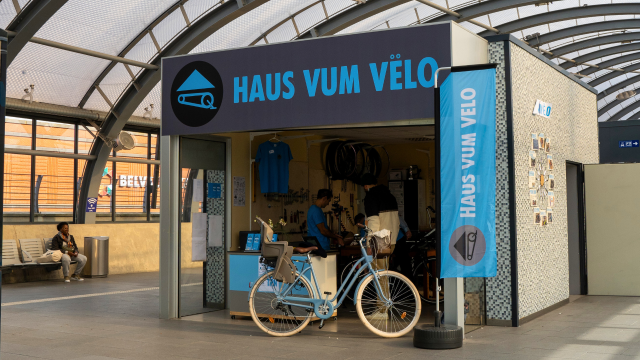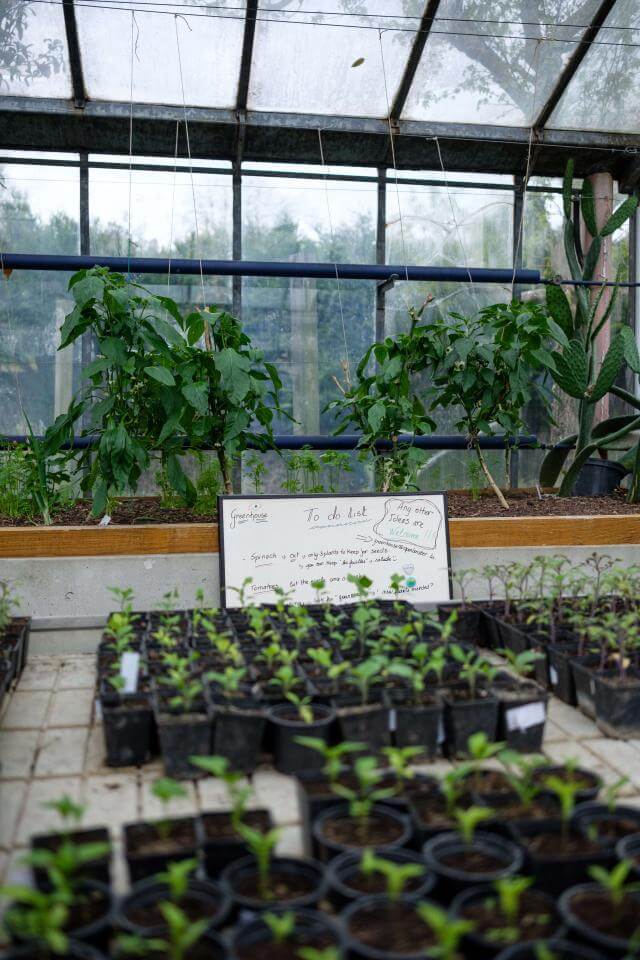Environmental
Environmental protection encompasses all actions aimed at preserving and restoring natural ecosystems, preventing pollution, and promoting sustainable practices to ensure the planet’s balance and the well-being of current and future generations.

©Lynn Theisen
The Co-labor project, supported in the focuas area "Environmental"
As part of its Environment focus area, Œuvre is committed to supporting tangible projects that convey strong messages and actively encourage a transition towards a more ecological and sustainable way of life. These initiatives, grounded in real actions carried out in Luxembourg, aim to strengthen social cohesion, inspire similar efforts, and generate a multiplying effect throughout society.
Œuvre’s environmental protection work is guided by four main priorities:
• Biodiversity and conservation of natural resources
• Circular economy and sustainable resource management
• Environmental education and awareness
• Sustainable food systems
To illustrate these four pillars, we present a non-exhaustive list of example projects that align with each area. These examples aim to demonstrate how these priorities can be translated into practice through concrete initiatives tailored to identified needs and goals.
- Soil conservation to protect microbial biodiversity and improve soil health
- Creation of ecological corridors and replanting of hedgerows and groves
- Establishment and management of nature reserves
- Development of biodiverse urban gardens
- Control of invasive species
- Ecological redesign of urban surfaces
- Species protection programs
- Promotion of nature-based solutions to mitigate climate risks (floods, droughts, storms)
- Forest protection
- Applied research offering concrete solutions to ecological challenges through a mix of technology and environmental preservation
- Rehabilitation and restoration of degraded ecosystems
- Reintroduction of species into their natural habitats
- Restoration of natural habitats
- Support for ecosystem restoration to increase resilience to climate change
- Support for green urban infrastructure (green roofs, water-absorbing parks, etc.)
- Support for sustainable beekeeping
- Support for geoconservation measures for threatened geological heritage sites
- Improved recycling habits
- Community and individual composting
- Combatting litter and waste in nature
- Promotion of the circular economy
- Support for zero waste, waste reduction, and repair initiatives (Reduce, Reuse, Repair, Recycle)
- Support for upcycling (creative reuse of waste)
- Valorization of organic waste
- Hands-on workshops on environmental protection
- Awareness campaigns targeting structural change
- Promotion of energy efficiency
- Training and awareness programs on sustainable energy
- Adult education programs fostering sustainable behavior change
- Education on responsible consumption (reduce, reuse, recycle)
- Environmental education in schools
- Promotion of sustainable transport
- Support for citizen-led initiatives
- Encouragement of responsible, regional, and sustainable consumption
- Promotion of sustainable farming practices
- Training on resilient and sustainable agriculture
- Support for short food supply chains (producer to consumer)
- Community gardens and food self-sufficiency projects
- Promotion of local and organic farming
- Food waste reduction
- Applied research in agroforestry, climate-resilient crops, and biofertilizers
- Research on the development of biological pesticides
- Awareness of eco-friendly, seasonal eating
- Support for food biodiversity (local crops and heirloom varieties)
- Support for regenerative and urban agriculture
- Support for food forests (agroforestry combining fruit trees and crops)





